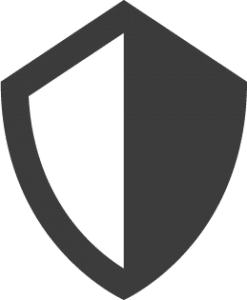Type of response:





With multi-year funding and a collaborative partnership the Sudan Protracted Crisis Joint Response (PCJR) is implemented in North Darfur, East Darfur, South Darfur, Gedaref, Kassala, White Nile, and South Kordofan State. Joint response partners provide lifesaving multi-sectorial humanitarian response assistance to populations affected by the conflict and support resilience building through existent community mechanisms. Joint response partners implement strategic activities that significantly contributed to community resilience, social cohesion, and anticipatory action in response to a rapidly evolving crisis context. The Sudan PCJR embraces “localization by design”, through a decentralized governance model working jointly with local partners in key decision making and coordination, guided by area based teams and supporting existing community mechanisms. The PCJR is also supporting diverse mutual aid groups, including Emergency Response Rooms like community kitchens.
The Joint Response
The activities carried out under this Joint Response are the following:
Food Security and Livelihoods (FSL): The response is enabling short term livelihood support through various interventions, addressing present needs and sector gaps. Overall the response is contributing to household coping strategies, and community mechanisms. Interventions include: income generating activities, provision of tools and raw materials, distribution of improved staple crops seeds and vegetables seeds, support to community committees, establishment of women’s Village Savings and Loans Associations (VSLAs), providing vocational start up kits, diverse trainings for farmers and different community groups, supporting animal vaccination campaigns and animal treatment, and establishment of goat banks as an effort for provision of livestock.
Water, Sanitation and Hygiene (WASH): The response is supporting hygiene promotion and needs, excreta disposal, water supply, and solid waste management. Overall, WASH assistance prioritizes meeting basic safety and dignity needs. This includes providing safe water to meet daily requirements according to SPHERE standards. The response is enabling regular and timely access to soap for handwashing and basic hygiene items. Interventions include provision of menstrual hygiene materials for women and adolescent girls, distribution of hygiene kits based on certified standard kits, environmental cleaning kits, and community mobilization activities. To mitigate the negative environmental impact of improperly managed waste, the response is increasing access to dignified, safe, clean and functional excreta disposal facilities. Interventions include rehabilitation of communal latrines in public areas including camps, markets, women and youth centres, and institutional facilities like schools and health centres.
Health: The response is support the rehabilitation of health infrastructure, provision of mental health and psychosocial support, response to epidemics, provision of primary health care, community outreach, and gender based violence response. Overall, the response is contributing to strengthening a health response and addressing mental health and psychosocial support needs. To improve healthcare accessibility, the following services take precedence: outpatient care, covering both communicable and non-communicable diseases; sexual and reproductive health, including preventive and curative care for women and adolescent girls, among other services. Identified healthcare facilities are equipped with essential medicines, medical supplies, and equipment based on identified gaps and needs.
Nutrition: The response is supporting the treatment of under nutrition, capacity strengthening with attention to nutrition, and screening of under/malnutrition. Overall the response is contributing to increasing proportion of coverage of nutrition programmes. The response efforts encompasses Outpatient Therapeutic Program (OTP) services for Severe Acute Malnutrition (SAM) and Moderate Acute Malnutrition (MAM), along with screening and reinforcing referral systems. Interventions include the deployment of trained healthcare workers to deliver nutrition services, distribution of nutrition supplies, monthly incentives for healthcare workers and referral services for Sam with complications. The response also targets two health facilities where the nutrition programmes are implemented through Outpatient Therapeutic Programme (OTP) for Community Based Management of Acute Malnutrition (CMAM).
Education: The response aims to support formal education, safe and accessible learning environments, and capacity strengthening with attention to education. The response is support girls and boys in formal education, with attention to their access to safe and quality learning opportunities. Interventions include distributions of essential teaching and learning supplies to students, teachers and education personnel, including supporting schools income generating activities (IGA). The interventions include support to schools through rehabilitation and construction of learning facilities, as well as construction or upgrading of teachers housing, and improving school water systems and entertainment facilities. The response also supports teacher and education personnel with necessary trainings. Interventions will include community and stakeholder mobilization on the importance of education, formation and training of Parent and Teacher Associations (PTAs) and education actors.
Protection (including Child Protection and Gender Based Violence): The response is strengthening prevention and response to violence, supporting management and monitoring of protection information, dissemination of protection information, ensuring capacity strengthening with attention to protection, advocacy on protection, facilitating GBV prevention and response, and child protection. Overall, the response is contributing to an increased sense of safety and well-being by affected population groups after engaging in protection related activities. Interventions include support to vulnerable children, including Unaccompanied and Separated Children (UASC) and Orphans and Vulnerable Children (OVC), with age appropriate case management services and emergency support to address immediate needs. Interventions also include procurement of case management supplies, incentives for case workers, social workers, and community volunteers, and strengthening of information management. Dignity kits distribution, targeting adolescent girls and young women, and provision of psychosocial support are also part of the response interventions. The interventions include community awareness raising sessions and advocacy events on gender equality, gender based violence, child protection, sexual reproductive health and rights, among other relevant issues. Mental Health and Psychosocial Support interventions include establishment of regular structured recreational activities, led by community volunteers, and coordinated with other protection interventions. Interventions also include provision of psychosocial support for communities affected by conflict through theatre, drama, songs and dancing.
Multi-Purpose Cash (MPC): The response enables unconditional and unrestricted cash. Overall, the response contributes to households ability to meet basic needs according to their priorities. The joint response partners target households with persons at increased risk, experiencing marginalization or significant vulnerabilities. Gender, age and disability analysis and related considerations will remain central in the cash distributions, with the overarching goal of reaching women, girls, boys, and men, particularly those with special needs and most marginalized. Partners will maintain focus on these principles and approaches to ensure effective and inclusive cash assistance programme interventions. The response interventions will include provision of cash and voucher assistance to extremely vulnerable households. This will follow analysis of different needs, capacities and opportunities to inform vulnerability criteria.
Shelter/Non Food Items: Given emergency developments in Sudan, with continued populations displaced, the Joint Response is also supporting interventions for the provision of Non-Food Items (NFIs), contributing to basic, safe and dignified shelter.
The JR is planning to reach 209,831 people during this response, without double counting.
Save the Children
Laan van Nieuw Oost-Indië 131-k
2593 BM Den Haag
The Netherlands
Chair organisation: Plan International
E: office@dutchrelief.org